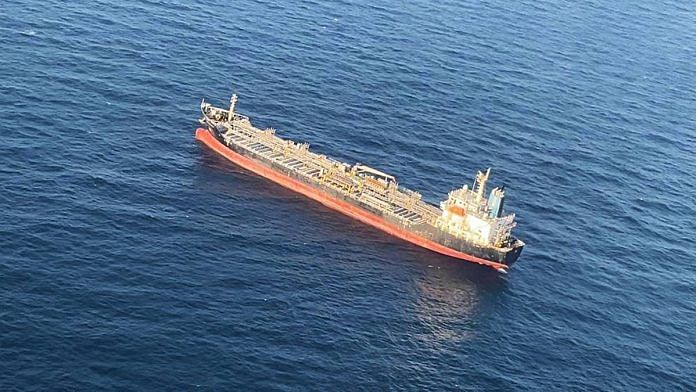New Delhi: The ongoing crisis along the Red Sea shipping route poses a risk to 80 percent of India’s goods trade with Europe and could lead to higher inflation and lower growth in India due to rising transport costs, the Ministry of Finance has warned.
Troublingly, it also said that efforts to diversify trade routes to avoid the crisis could hurt India’s merchandise trade competitiveness.
The Red Sea crisis — involving attacks by Yemen’s Houthi militants on ships transiting the area in protest against Israel’s actions in Palestine, which have led to retaliatory strikes by the US and the UK — is having an impact on global food prices, the Department of Economic Affairs (DEA) said in its Monthly Economic Review for February 2024, released Friday.
“The ongoing crisis in the Red Sea shipping route is having an impact on global food prices, with longer cargo travel distances and higher freight rates potentially leading to an increase in cost,” the report said.
A February 2024 report by the United Nations Conference on Trade and Development (UNCTAD), cited by the DEA’s report, found that the Suez Canal saw a 42 percent drop in transits in January 2024 compared to their peak levels in May the previous year.
This situation has since worsened, according to the data provided by the government. “Container ships routing through the Suez canal are shunning and rerouting around the Cape of Good Hope,” the DEA’s report said. “By the first half of February 2024, container tonnage crossing the canal fell by 82 percent, and vessel tonnage passing through the Cape of Good Hope increased by 60 percent.”
The report said that the extra miles travelled to go around the Cape of Good Hope and the days lost due to trade diversion have translated into additional costs such as fuel costs and the lost value of time-sensitive cargo.
It added that other costs — such as insurance and legal costs — are also increasing due to the prevailing security considerations, including the risk of piracy.
Key products in India affected
“80 percent of India’s merchandise trade with Europe passes through the Red Sea, with key products such as crude oil, auto & auto ancillaries, chemicals, textiles, and iron & steel being affected,” the report said.
“The combined impact of higher freight costs, insurance premiums and longer transit times could make imported goods significantly more expensive,” it added.
While several sectors could face disruptions due to the Red Sea crisis, the finance ministry’s report made particular mention of the fertiliser and oil sectors.
“The conflict has impacted the Middle East’s fertiliser exports to India as import of the muriate of potash from Jordan and Israel has been affected,” it said. “Asian economies such as China, Japan, India, and South Korea are among the largest net oil importers globally. Hence continued shipping disruptions could hit Asia. A rise in oil prices may pose upside risks to inflation and, consequently, to growth.”
The report said that traders might try to diversify their trade routes and transport options, but that this could have other negative effects.
“To effectively address these challenges, there may be a need to diversify trade routes and transportation options,” it said. “That would increase transit costs and affect the price competitiveness of Indian merchandise exports.”
Also read: Who are Houthis? Yemen group that’s declared war on Israel & how it plays into Iran-Saudi proxy war



